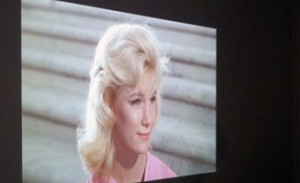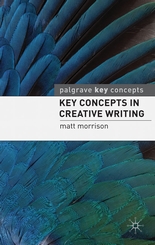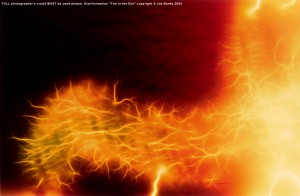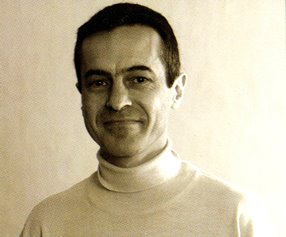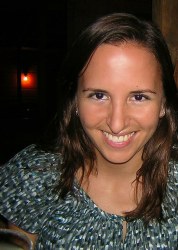Posts by David
Modernism lives

Excellent guest blog by our own Michael Nath at Exclusively Independent about Gabriel Josipovici’s Whatever Happened to Modernism? and the media fuss that it’s generated:
“Professor Josipovici argues that the English novel has become caged in recent decades, and that its famous practitioners have been putting on a tame show, for all their swaggering. This has annoyed the literary reviewers and metropolitan columnists, who’re in the habit of making a fuss of certain big names, and don’t appreciate being told they’ve been cheering cows; but it happens to be true. The ranking writers and the prize-winners make it solely because the idea has caught on that ‘Modernism is dead’; the consequence of this is that contemporary writing can prowl about quite safely in its cage, or not prowl at all but just peep through its fingers.”
Read more here. And while you’re at it, check out David Cunningham’s review of Nicolas Bourriaud’s Altermodern exhibition in a recent issue of the Journal of Visual Culture. The defence of modernism begins here!
Scottish Women’s Gothic

Another day another new book from an IMCC associate. We’re delighted to announce the publication of Monica Germana’s first book, Scottish Women’s Gothic and Fantastic Writing, from Edinburgh University Press.
The book considers four thematic areas of the supernatural – quests, dangerous women, doubles and ghosts – each explored in one of the four main chapters. Being the first critical work to bring together contemporary women’s writing and the Scottish fantasy tradition, the volume pioneers in-depth investigation of some previously neglected texts such as Ali Smith’s Hotel World; Alice Thompson’s Justine; Margaret Elphinstone’s longer fiction, as well as offering new readings of more popular texts including A.L. Kennedy’s So I am glad, Emma Tennant’s The Bad Sister and Two Women of London. Underlying the broad scope of this survey are the links – both explicit and implicit – established between the examined texts and the Scottish supernatural tradition.
The Time Machine in alphabetical order
Thomson and Craighead have uploaded a short video extract from their fabulous installation The Time Machine in alphabetical order to their website, along with a few other juicy additions to their archive.
Check it out here.
Key Concepts in Creative Writing
IMCC member Matt Morrison’s book, Key Concepts in Creative Writing, is published by Palgrave this week – a comprehensive writers’ guide to the terminology used across the creative writing industries and in the major literary movements. Packed with practical tips for honing writing skills and identifying opportunities for publication and production, it also explains the workings of publishing houses, literary agencies and producing theatres.
Joe Banks, AHRC Research Fellow in the Creative and Performing Arts, joins IMCC
We are thrilled to welcome Joe Banks to the Institute for Modern and Contemporary Culture at University of Westminster, London. Joe is AHRC Research Fellow in the Creative and Performing Arts, and his current ongoing major project ‘Rorschach Audio’, studies ambiguities of acoustic perception, with particular emphasis on relationships between artistic and perceptual creativity and illusions of sound. Joe’s experimental music and installation art project Disinformation recorded 8 commercially published LPs and CDs (pioneering the use of electromagnetic noise from electric and magnetic storms, live mains electricity, industrial, domestic and IT hardware, transport infrastructure and from the sun etc., as the raw material of electronic music and sound art).
José Luis Brea (1957-2010) In Memoriam
(1957-2010)
In Memoriam
Anna Maria Guasch, University of Barcelona
At the end of August 2010, the publication of what would sadly turn out to be the penultimate text written by José Luis Brea, Professor of Aesthetics and Contemporary Art Theory at the Universidad Carlos III of Madrid, awoke in many of us a deep feeling of sorrow and anxiety. The article in salonKritik, the online magazine he founded, was not by any means a farewell or some autobiographical sketch, but the comprehensive re-issuing of a text that served as a theoretical basis for the exhibition ‘The Last Days’ (Seville, 1992). During those years, José Luis Brea proved himself to be ahead of his time when it came to leading the way in new curatorial practices, with his exhibition ‘Before and After the Enthusiasm’ (Amsterdam, 1989) and with his essays that explored the end of the so-called Age of the Enthusiasm and the advent of the new ‘Cold Auras’.
The message carried by the re-publishing of Brea’s article was very clear: All those who knew well José Luis were very aware of his illness – although we couldn’t imagine that the end of his life was so near and his last days so close.
Thus, it was only a few days later that we understood with great sadness that the article, in which he refused any apocalyptic temptation and rejected any perception of cultural agony, was the chronicle of his own death. And while it may have marked the death of its author, it did not mark end of the World he studied and observed.
The article was published within the ‘free thoughts’ section of salonKritik, a section that defines Brea’s open-minded and versatile approach to the theoretical and critical discourses of the last decades. Demonstrating a freer and more rhizomatic way of thinking, Brea’s approach was the basis of scholarly essays as important as El tercer umbral. Estatuto de las prácticas artísticas en la era del capitalismo cultural (Premio Espais a la Crítica de Arte, 2003) or his very last book, Las tres eras de la imagen: Imagen-materia, film e imagen (2010) as well as experiments in critical literature in Las Auras Frías (finalista Anagrama de ensayo, 1990), Un ruido secreto. El arte en la era póstuma de la cultura (1996) or La era posmedia. Acción comunicativa, prácticas (post) artísticas y dispositivos neomediales ( 2002).
Brea’s approach grew out of the work of philosophers such as Deleuze and Nietzsche, and he was most at home inside reticular structures in constant flow. Or, to put it in his own words, inside dynamic systems, permanently instable, at the very heart of thinking machines drawing the outlines of desire, openings, displacements, figures, constant becomings … (Por una rizompolítica, 14 August 2010),
Only with these Deleuzian concepts in mind can we fully understand the texts he published in Estudios Visuales, the magazine he also edited from 2003 to 2010 and the magazine that introduced the rhizomatic system of thought represented by visual studies to Spain. Undoubtedly, his work on Estudios Visuales will also be remembered for the astonishing success of the first Congreso Internacional de Estudios Visuales (Arco, 2004), a conference that brought the international concepts of multi-disciplinarity, the visual turn, synaesthetic visuality, scopic regimes, and all those ideas that have contributed so strongly to the de-activation of power structures inside academia to the Spanish cultural system.
Having found a different position from W.J.T. Mitchell, Mieke Bal, Keith Moxey and Martin Jay (with whom he shared and discussed an epistemological approach to images), Brea built a whole corpus of thought described in his much quoted work Estudios Visuales. La epistemología de la visualidad en la era de la globalización (2005), the first in a series of books he directed for the Spanish publishing house Akal.
Brea was also interested by the idea of the universality of knowledge and the new humanities, by the relationship between aesthetic philosophy, history of art and visuality, and by the mixtures and meeting points between and amongst art, science and technology. Furthermore, he pioneered new curatorial practices, represented by his on-line exhibition La conquista de la ubicuidad (2003), through texts such as cultura_RAM (2007) and by the art websites and online magazines he founded, such as Aleph and artes.zin. However divergent these practices, Brea exhibited in all of these cultural forms a devotion to addressing the complex and fascinating mutations of culture in the age of electronic media.
José Luis Brea was never a compromising thinker. He didn’t hesitate to articulate acute and almost heroic critiques of a certain kind of museum politics, even if his critiques ended up misunderstood, sometimes perhaps wilfully so. He championed free thinking, away from power and far away of what he called ‘pitiable well being’. But most of all, José Luis was adept at something quite uncommon in our field of research: generosity. This generosity could not only be found in his relationship with friends and colleagues, but was also demonstrated in its most difficult sense, as academic generosity. Exploring his website, www.joseluisbrea.net, is enough to realise that his wisdom crossed the boundaries represented by the often hegemonic cultures of writing, the library or the archive. All, or nearly all, of his thought and his work is freely available online, and has long been available for the ‘global’ reader.
And José Luis did all this without ever forgetting what he called ‘affectivity economy’, a geography of affections, that was precise and crystallographic. It is this mineral metaphor that pervades his very last article for salonKritik, an article that, according to his own wishes, was to be read only after his death. In his essay Mineralidad absoluta (el cristal se venga), an essay influenced by Nietzsche, Brea uses the image of the ‘crystal’ in order to partially hide the vertigo provoked by the idea of an imminent death. Crystals are the purest expressions of minerality, as Nietzsche reminded us when he wrote about our common final destiny in the mineral kingdom. Unbendingly courageous, Brea tells us about his consciousness for the very last time, with no return, of a life in perennial flux, of an absolute materiality that, rather than the dark hole in the heart of matter turns out to be the nucleus from which light emerges, in which the interconnected places cause synaptic sparks that carry us to the unexpected: the final destiny.
In another of his key works, Noli me legere (2007), Brea brought to the fore the rhethoric implicit in all languages, carving out a position between Benjamin’s stress on allegory as a paradigmatic figure of the artistic discourse and the tendency to drift away from the logical-semantic values of language in order to, following Nietzsche, stress its instrumental value, a value that encourages action. As Brea wrote, and this thought might be a good epitaph: ‘Language is more of an instrument of the Will of Power than of a tool for the representation of the World’. Rest in peace, dear friend.
Translated by Javier Montes.
Anna Maria Guasch, Professor of Contemporary Art. University of Barcelona, Spain.
Radical Philosophy: Capitalist Epics

The latest issue of Radical Philosophy is out now, including a new article by David Cunningham entitled ‘Capitalist Epics: Abstraction, Totality and the Theory of the Novel’. The issue also includes cracking pieces on James Ellroy and Rodolfo Kusch, as well as the latest analysis of Benjamin and Brecht’s now infamous chess game… Buy it in all good bookshops or subscribe here.
Upcoming Westminster English Lit Research Seminars
There is now a complete list of dates and paper titles for this semester’s series of English Literature and Culture seminars. All will take place from 1.15-2.30pm on Wednesday lunchtimes in room 106 in the University’s Wells Street building:
27th October 2010
Nick Hubble (Brunel University)
“Naomi Mitchison: From Intermodernism to Science Fiction (via Mass-Observation)”
10th November 2010
Joanne Murray (Birkbeck College, University of London)
“JG Ballard and New Brutalism”
24th November 2010
Martin Willis (University of Glamorgan)
“Martian Astronomy and Popular Fiction”
8th December 2010
Stephen Ross (University of Victoria, Canada)
“Ghostmodernism and Ethics”
Further details at: http://seminarserieswmin.wordpress.com/
Alexa Wright awarded AHRC Fellowship and residency at The Banff

We are thrilled to announce that the IMCC’s Dr Alexa Wright has been awarded an AHRC Fellowship for 2010-11, and will be spending part of the forthcoming academic year as a Fellow at the prestigious Banff Centre in Canada.
Alexa’s AHRC project is entitled ‘A View From Inside’, and is a collaboration with Professor Graham Thornicroft at the Institute of Psychiatry, King’s College, London and Post-Doctoral Research Fellow, Dr Heidi Lempp. For the project, Alexa will create a series of eight large-scale digitally manipulated photographic portraits of people with short-term psychotic disorders or episodic conditions like schizophrenia. These images will challenge the viewer to readdress his or her ideas about ‘the type of people’ represented. Subjects will be depicted in such a way that does not make them appear different in any way, but the settings in which they are located will be altered digitally to coincide with the perceptual experiences described by each person.
The project will draw on the symbolism and techniques of eighteenth-century portrait painting as a means of representing the lived experiences of the subjects. Alexa will spend time working with individuals who experience psychotic disorders that lead to an intermittent loss of contact with reality in order to find a language comparable to the codes employed in eighteenth-century portraiture to represent both their outward appearance and their internal experience of what is ‘real’.
At Banff, Alexa will be taking part in the residency ‘The distance between our minds and thoughts equals the distance between our words and mouths’, led by Jan Verwoert, where she will produce her audio/video installation, ‘Heart to Heart’.
Call for Papers: IMAGE=GESTURE, Bergen, Norway, November 2011

IMAGE=GESTURE
The 2011 Nomadikon Conference
Bergen, November 9-11, 2011
Confirmed keynote speakers:
Martin Jay (UC Berkeley)
Wendy Steiner (University of Pennsylvania)
Libby Saxton (University of London)
More TBA.
Images seduce. Images deceive. Images conceal. Images reveal. Images make icons. Images break icons. Images are agents of political struggle. Images are sacred. Images are secular. Images are powerful. Images are powerless. Images are banal objects. Images are aesthetic artefacts. Images embody cultural concepts materially. Images create concepts. Images are bodies without organs. Images are photographic. Images are cinematic. Images are digital. Images are real. Images are reality. Images are mimetic. Images are amimetic. Images are currency. Images are worthless. Images want something from us. Images witness. Images haunt us. Images are fundamentally unknowable. Images are entelechial. Images travel. Images are boundless. Images are transmutable. Images are ephemeral. Images are excessive. Images are inadequate. Images are mute. Images are language. Images are beyond language. Images disturb us. Images hurt us. Images are destructive. Images are redemptive. Images are transcendental. Images are transparent. Images are opaque. Images are worth more than a thousand words. Images are primitive. Images are historical. Images are poetic. Images are synechdochic. Images are rhetorical. Images shape the imaginary. Images are neural. Images are neutral. Images are ubiquitous. Images are haptic. Images are spiritual. Images are matter. Images matter. IMAGE=GESTURE.
Nomadikon now invites paper proposals that relate to the overall conference topic and to one or more of the streams below. Abstracts should not exceed 400 words. Please include a short bio. Deadline for submitting abstracts: November 10, 2010. Nomadikon also intends to publish one or more anthologies of articles based on material from the conference.
As a critical and heuristic trope, the gestural galvanizes many of the most pertinent areas of inquiry in contemporary debates and scholarship in visual culture and related disciplines:
a) Ethics: Images and their values and affects.
b) Ecology: Iconoclastic gestures and spaces of conflict.
c) Experience: The human as acts of mediation/product of the gaze.
d) Epistemology: Archive, document, memory.
e) Esthetics: From visual essentialism to transesthetics and synesthesia.
As both a cultural phenomenon and a philosophical concept, the notion of gesture straddles several disciplines, such as anthropology, linguistics, performance, theater, film and visual studies. At once a codified and natural expression, the gestural is peculiarly and somewhat ambiguously situated between the realm of the discursive and the realm of the instinctual, between the culture-specific and the universal, and between the corporeal and the visual. As a mode of mediation the gestural also traverses the distinct, albeit interrelated spheres of the political, the aesthetic and the everyday. A space of visual articulation in which rhetoric and semiotics intersect, the gestural produces movements and energies of eloquence capable of generating ideas, perceptions and affect.
Within the context of the present event, we would like to suggest that gesture could also rewardingly be re-deployed as a metaphorical and figurative concept. As among others Hans Belting has shown, there is a rather intimate connection between bodies and images, and if bodies can convey gestures, maybe images can too. Thus, we would like to ask: How may one speak not only of the gestures of the body but also of the gestures of the image? What constitutes gesturality in the image and, more broadly, what are the gestures of the aesthetic itself? In W.J.T. Mitchell’s already canonical postulation, pictures must be considered animated beings with drives, demands and desires of their own. They are, however, also in a sense mute beings incapable of speaking the hegemonic vernacular of logocentric discourses. But while pictures cannot speak in the literal sense, perhaps they have a gestural language of their own?
Open House

Not strictly a tour around the Institute, but we thought we should flag up the fact that Westminster is taking part in Open House London, the capital’s largest architectural showcase, on September 18. Visitors can take a tour of the site of the original Polytechnic opened in 1838, visit the Sports Hall and the site of one of the first public swimming pools in London, and learn the importance in cinematic history of the Old Cinema.
Times: Tours at 10am, 11.30am, 2pm and 3.30pm. Pre-book only, maximum 25 per tour.
Admission: Free.
More information here.
CRMEP Seminars
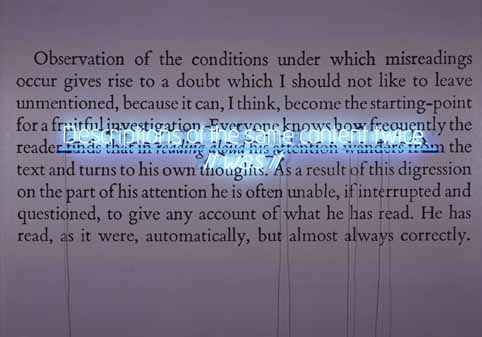
Our friends at the Centre for Research in Modern European Philosophy, now safely relocated at Kingston University, have announced their list of seminars for the coming term.
7 October 2010
Hegel, Kierkegaard and Mediation
Jon Stewart (Kierkegaard Research Centre, Copenhagen University)
Venue: Swedenborg Hall, 20-21 Bloomsbury Way WC1A
21 October 2010
Philosophy, Capitalism and the Novel
David Cunningham (IMCC, Westminster)
Venue: Ramsay Lecture Theatre, UCL, 20 Gordon Street WC1H
26 October 2010
Title ‘What is a Psychic Event? Freud and Contemporary Neurology on Trauma’
Catherine Malabou (University of Paris, Ouest-Nanterre)
Venue: The Churchill Room, Goodenough College, Mecklenburgh Square, London, WC1N
11 November 2010
Between Sharing and Antagonism: The Invention of Communism in Marx’s 1844 Manuscripts
Antonia Birnbaum (Philosophy, University of Paris 8)
Venue: Swedenborg Hall
MA Visual Culture, University of Westminster, London

MA Visual Culture, University of Westminster, London
Places are still available for September 2010 entry.
The MA in Visual Culture is a unique multi-disciplinary course established around the belief that visual literacy, and the impact of visual forms of thinking and working play a significant role in our contemporary global, network society. The MA balances historical and theoretical debates in the field of visual culture studies with a rigorous interrogation of cultural practices across: contemporary visual arts, capitalism and culture; the material culture of the city; activism and popular politics; institutions and their archives; globalization and new media technologies. The MA also draws upon the cultural institutions and intellectual resources of central London.
The course team is composed of leading scholars, curators, and fine art practitioners. As such it is an intellectual environment conducive to students with similar backgrounds and aspirations, committed and hoping to contribute professionally to the local, national and international world of cultural organisation, the creative economies, and cultural institutions.
For further details: email course-enquiries@westminster.ac.uk, call +44 (0)20915 5511, or visit our website:
For more information on our other courses, MA Cultural and Critical Studies and MA English Literature, as well as our PhD programme in Arts, Humanities, and Cultural Institutions, click here.
New IMCC Visiting Junior Research Fellow
The IMCC would like to welcome Courtney Hopf to the University of Westminster as a Visiting Junior Research Fellow during the latter half of 2010. Courtney is completing a PhD at University of California Davis, and her challenging interdisciplinary research concerns the future of narrative theory in the context of interactive, multi-user online collaborations. She will be hosted by the Institute from August 2010 until January 2011.
For more on our Junior Visiting Research Fellowship programme, see here.
Nigel Mapp joins IMCC
We’re delighted to welcome Nigel Mapp to the IMCC from this August. Nigel is joining us at Westminster from the University of Tampere in Finland, and is author of the book Paul de Man (Polity 2011) and co-editor of Adorno and Literature (Continuum 2006). He has published widely on critical theory, deconstruction and early modern literature, and is currently working on literature and disenchantment.
Children’s Theatre in the UK
Theatre for a Young Audience in the UK
Karian Schuitema, a PhD student at Westminster, has organised a one-day conference to be held at the University on Friday 16th July.
Keynote Speakers:
Wolfgang Schneider (University of Hildesheim, Germany. ASSITEJ President)
Matthew Reason (York St John University)
Jeanne Pigeon and Roger Deldime (Université Libre De Bruxelles. Founder of Centre de sociologie du théâtre and founders of Théâtre La Montagne Magique)
Further details, including full programme on Karian’s website here.
Listen With Ballard: Ballardian Architecture Online
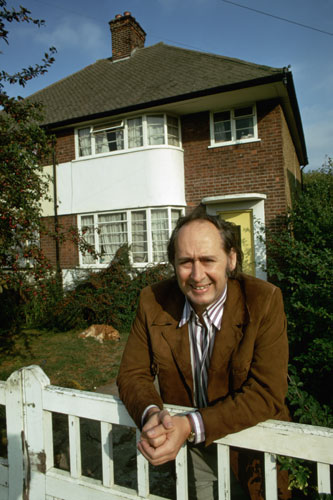
You can now listen to the talks at the Royal Academy Ballardian Architecture symposium last month, including those of IMCC Deputy Director David Cunningham, John Gray, Nigel Coates and Nic Clear.
Audio files are up on the RA site here.
Call for Papers: Fragments, Openness and Contradiction

Fragments, Openness and Contradiction in Painting and Photography
Saturday November 27 2010, Central Saint Martins College of Art and Design
The restitution of the tableau form (to which the art of the 1960s and 1970s, it will be recalled, was largely opposed) has the primary aim of restoring the distance to the object-image necessary for the confrontational experience, but implies no nostalgia for painting and no specifically “reactionary” impulse. The frontality of the picture hung on or affixed to the wall and its autonomy as an object are not sufficient as finalities. It is not a matter of elevating the photographic image to the place and rank of painting. It is about using the tableau form to reactivate a thinking based on fragments, openness and contradiction, not the utopia of a comprehensive systematic order.
Jean-François Chevrier
In preparation for a two day international conference, Tableau/dispositif/apparatus, at Tate Modern in October 2011, our friends at Central Saint Martins are staging a symposium on Saturday November 27 in collaboration with the London Consortium to hear papers which address the nature of pictorial forms in contemporary practice; ‘fragmented, open and contradictory’ which Jean-Francois Chevrier opposes to the ‘utopia of a comprehensive systematic order’. This symposium is in preparation for the second day of the Tate conference which will be dedicated to the presentation of research papers.
500 word abstracts should be submitted by 1 October 2010 to Mick Finch: m.finch@csm.arts.ac.uk
Tagged as art, painting, photography
Performance Matters

The Whitechapel Salon: Matter Matters II: Performance Matters
Thursday 1st July, 7pm
Study Studio, Whitechapel Gallery, London E1 7QX
Spanning art, architecture, performance and sustainability, this year’s series of four Salon discussions focus on the matter of ‘matter’ – its nature, substance and the productive forces that govern it. For July Gavin Butt (Goldsmiths College, London), Adrian Heathfield (Roehampton University), and Lois Keidan (Director, Live Art Development Agency) consider Performance Matters.
Co-organised by the IMCC and Whitechapel Gallery. Book now to avoid disappointment!
Tickets: £8/£6 (includes free glass of wine)

